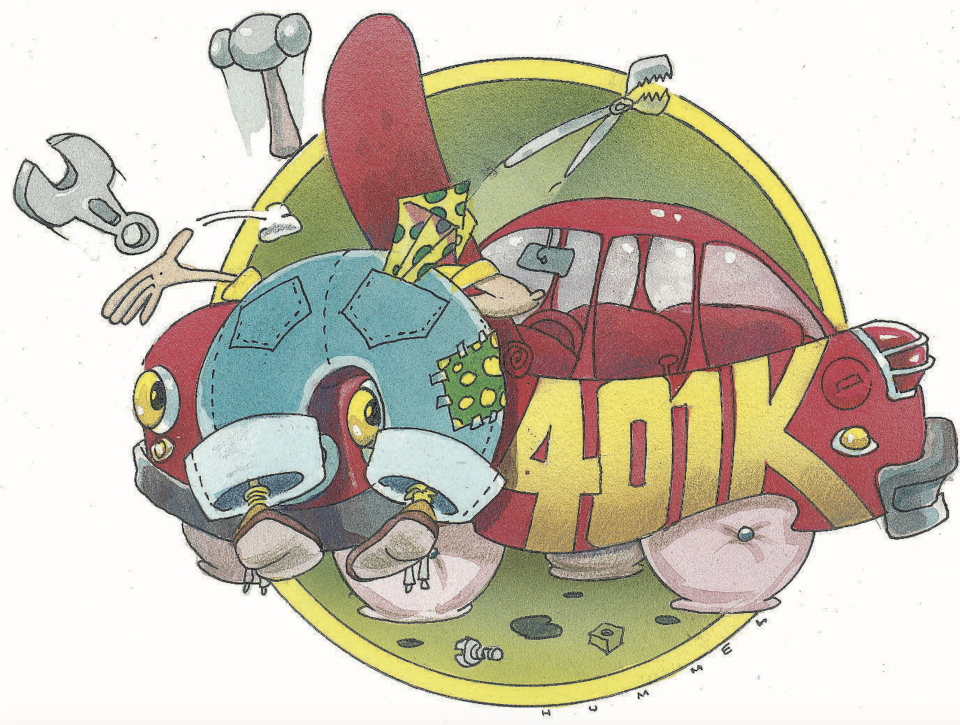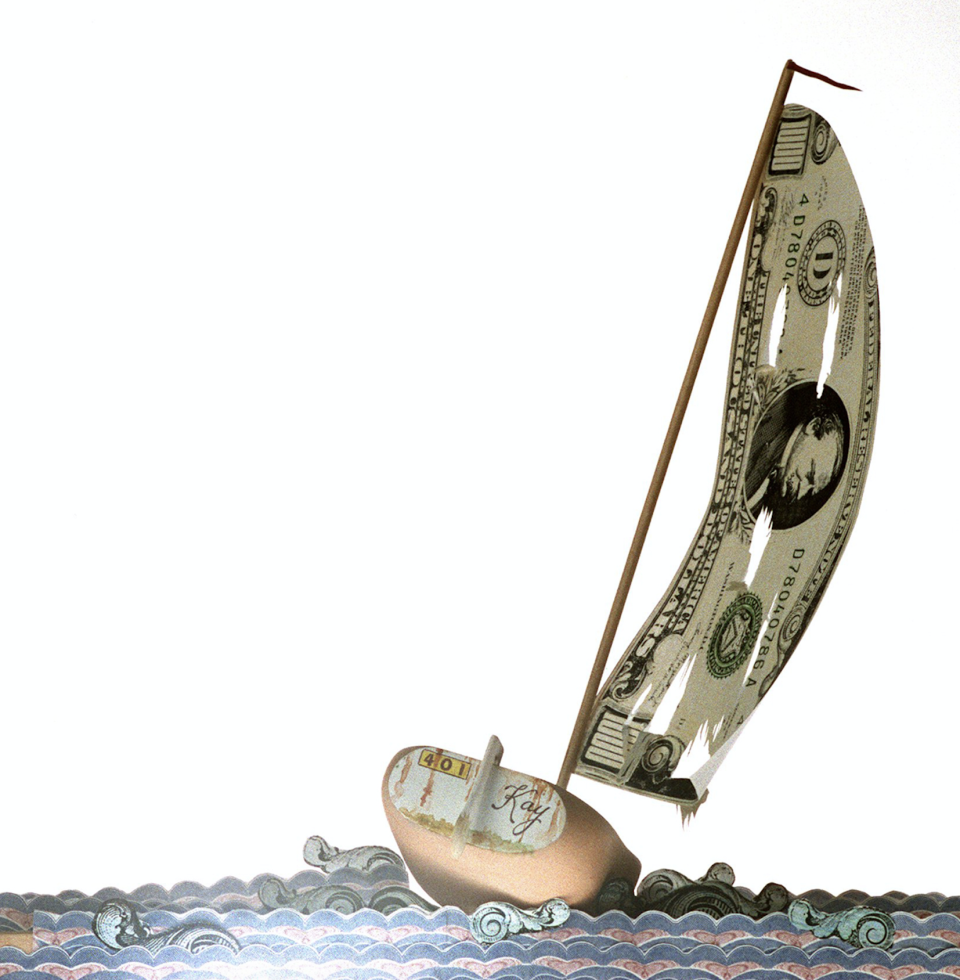401k day: Here's what that means and mistakes to avoid
National 401k Day — which is September 6 in 2019 — was created as a play on the concept that Monday kicks off the week with labor and work week ends with retirement.
The best way to celebrate the day is to learn more about this common retirement savings path. Yahoo Money connected with financial attorney and debt expert Leslie H. Tayne, Esq. to give you the 411 on your 401k.
What is a 401k?
A 401k is a common retirement savings plan sponsored by an employer. A 401k allows employees to contribute a portion of their paycheck to their retirement savings pre-tax. Named for the section of tax code that was created in the 1980s to complement pensions, the 401k gives the employee the option of how their money is invested.
According to a survey by TD Ameritrade, less than 40% of Americans can answer basic questions about 401k plans. It’s nearly impossible to make the most of something you aren’t completely comfortable with, so being educated on 401k plans is an important first step.

Mistakes to avoid in 401k investing
Waiting to start investing: When you’re starting out, retirement can seem like light years away — especially when you’re in your 20s and milestones like marriage and/or children aren’t on your short-term radar.
“One of the most common mistakes in 401k investing is delaying starting to invest,” Tayne said.
When you’re earning a consistent paycheck for the first time in your life, Tayne acknowledged there are competing interests for your money like paying off student loan debt and treating yourself to a vacation. But the interest on 401k plans compounds. So the earlier you begin to invest, the more time your money will have to grow.
If you haven’t been the best saver, you can still make up for the lost time by maxing out your 401k contribution. Tayne suggests that it’s worth sitting down with your company’s HR department or supervisor, express that you’re looking to sock away money, and ask if they’re willing to work with you to set up a plan.
“You can look for high-interest savings accounts or other investments that you can start on your own,” Tayne noted.
Thinking 401k investing is one size fits all: Financially speaking, targets and goals are great. But fixating on a particular percentage or number can derail your progress. When deciding how much to contribute, there’s no magic number or percentage.
“Ideally, you want to be putting away what you can, especially early on, you want to try to maximize those pre-tax dollars,” Tayne said.“Unfortunately, there isn't necessarily a direct formula because 401k investing looks at the totality of an individual’s finances to create an investment strategy.”
She continued: “When you're young, you want to decide what it is you're trying to accomplish and by when. If your goal is to pay off your student loans or pay off your home mortgage, then you may want to not put as much money away because your goal is to be liquid.”

Getting complacent: A 401k is not a set it and forget it type of investment tool. Many employees set their contribution at a percentage commensurate to their lifestyle when they first enroll in the plan and then lose track of it.
Financial windfalls like salary raises or a surplus from paying off student debt contribute to your income and should be calculated when weighing how much to contribute to your 401k.
“It’s important to get in the habit of regularly checking on your contributions to determine whether you’re contributing as much as possible based on your financial situation,” Tayne advised.
Withdrawing early for the wrong reasons: Emergencies are a fact of life. But when a bind leaves you short on cash, resist the temptation to withdrawal from your 401k before retirement.
An early withdrawal not only means you’ll be charged a 10% penalty and be taxed on your withdrawal, but it will also upend the progress you’ve made and derail your future progress.
“Withdrawing from your 401k can be a viable option to help you in a financial bind, but it’s important to consider the costs and the impact it will have on your long-term goals,” Tayne said. “It’s a decision that should be taken very seriously and not simply used as an easy way out of a bad situation.”
Failing to use your employer match: The idea of all of this is to make your money work for you. Tayne says it’s important to remember that “an employee match isn’t a rite and there’s no guarantee that your next employer will extend you the same benefit.”
Seize the opportunity to have your money grow and secure your future.
Stephanie is a writer for Yahoo Finance. Follow her on Twitter @SJAsymkos.
Read more:
The Amazon rainforest is burning — here's how you can help save it
Credit card rates keep going up, and Americans are getting trapped
Read the latest financial and business news from Yahoo Finance
Follow Yahoo Finance on Twitter, Facebook, Instagram, Flipboard, SmartNews, LinkedIn,YouTube, and reddit.


